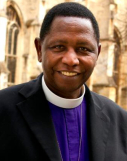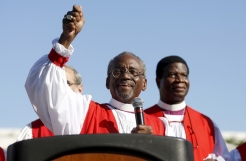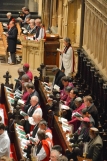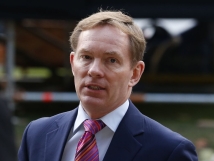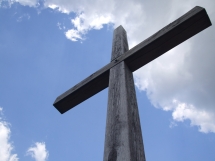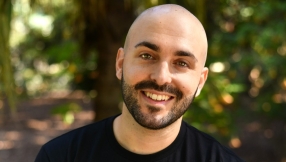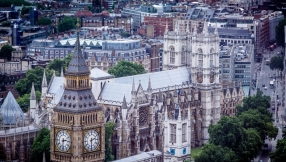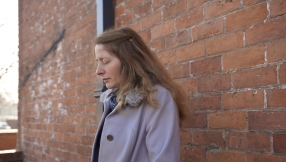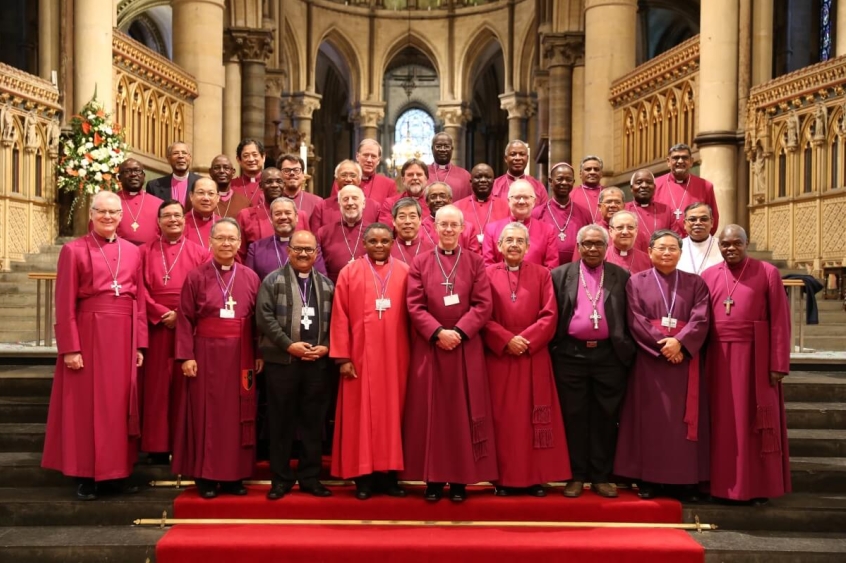
The Archbishop of Canterbury today announced the next Lambeth Conference will be in 2020, indicating the success of this week's gathering of Anglican Primates in maintaining the unity of the Anglican Communion.
Archbishop Justin Welby had delayed calling a Lambeth Conference conference on the due date of 2018 because of the divisions over homosexuality which this week's meeting of 39 Primates from 38 provinces was called to address. Normally, the conferences take place every 10 years.
In response to a question from Christian Today, Archbishop Welby said he had great hopes for the conference. "I hope we get the money to do it. I hope that it's a conference which affirms and does not hurt people and that glorifies God in doing that. I want it to be a conference where people celebrate the love and joy of Jesus Christ with passion."
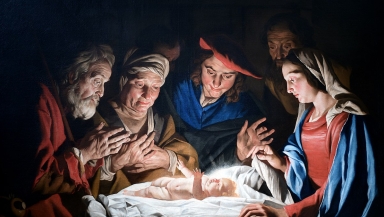
Archbishop Welby denied that "sanctions" had been issued against The Episcopal Church, which has incurred the wrath of the Global South and other conservative primates for consecrating gay bishops and approving gay marriage. The Anglican church of Canada is also moving forwards to possibly approving same-sex marriage later this year.
Instead, the Archbishop said, The Episcopal Church was faced with the "consequences" of its actions of making a unilateral decision to change marriage doctrine in its province.
In their communique issued today, the Primates made clear there had been no schism: "It is our unanimous desire to walk together. However given the seriousness of these matters we formally acknowledge this distance by requiring that for a period of three years The Episcopal Church no longer represent us on ecumenical and interfaith bodies, should not be appointed or elected to an internal standing committee and that while participating in the internal bodies of the Anglican Communion, they will not take part in decision making on any issues pertaining to doctrine or polity."
Archbishop Welby is to appoint a task group to restore the broken relationships in the Communion, to help rebuild mutual trust and to heal the legacy of hurt. The task group will also attempt to find a way forward in unity for the Communion while exploring "our deep differences", the Primates said.
They also condemned homophobic prejudice and violence, resolving to work together to offer pastoral care and loving service, and expressed "profound sorrow" they had often acted in a way that has caused "deep hurt" to the lesbian and gay community.
As protestors from the lesbian and gay community chanted outside about the failure of the Primates to deliver justice, given the "consequences" enforced against The Episcopal Church, Archbishop Welby admitted at a press conference that the meeting had been "complicated". But overall, he said, the spirit of the meeting was good.
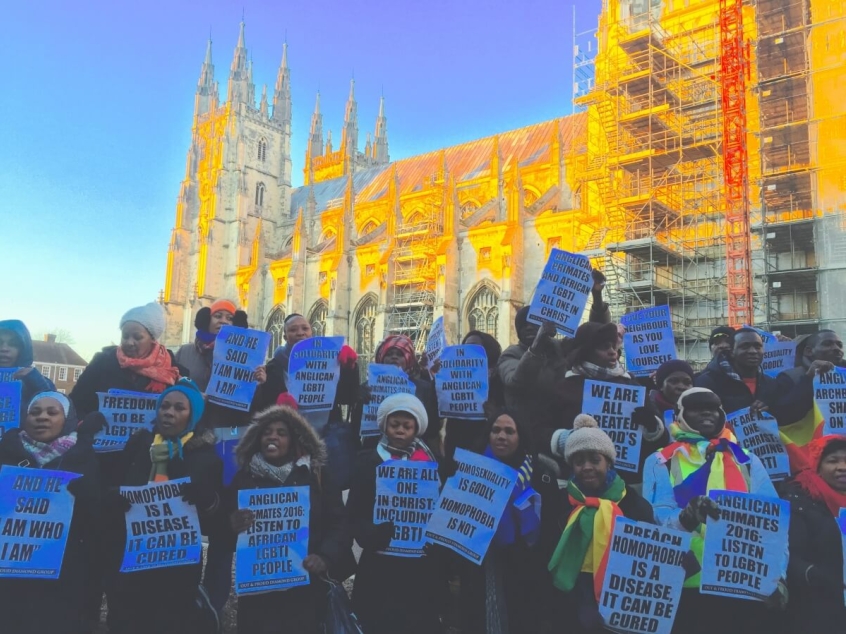
Referring to the protestors, he said they "remind us of the pain and suffering" of LGBT people around the world. He added: "It is for me a constant source of deep sadness that people are persecuted for their sexuality."
Archbishop Welby also apologised directly: "I want to say how sorry I am for the hurt and pain in the past and present that the Church has caused and that the love we have at times completely failed to show."
The communique was achieved by majority vote only and Archbishop Welby admitted there had been disagreements. "One thing we do say simply is that we love and seek to serve Jesus Christ."
On the question of the US church, he said: "The issue for the meeting was much more that they went ahead with a change to a basic understanding of doctrine ahead of the rest of the Communion." He insisted: "We are not sanctioning them. We have simply said that if any province is out of line there will be consequences in their full participation of the life of the Communion."
The Episcopal Church will play a full part on moral issues, but they will not play a full role in deciding issues of doctrine and polity, which is to do with them not being part of the process of interdependence, Welby added. "We are very careful not to use the word sanctions. We don't have any power to use sanctions."










